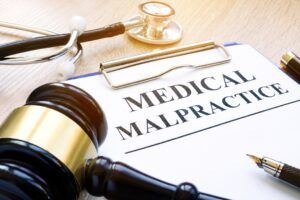The Emergency Medical Treatment and Labor Act: Your Right to Hospital Treatment Even if You Don’t Have Insurance

If you or a loved one were denied emergency medical treatment because of a lack of insurance, you may have a claim under EMTALA.
Despite the progress made by the Affordable Care Act and other reforms made at the state level, there are still many citizens in this country who do not have private health insurance or receive government health benefits such as Medicare or Medicaid. For those without health insurance, every trip to the hospital carries a risk of receiving a massive bill that could bankrupt them or destroy their credit, as well as the fear that the hospital would refuse to treat them without insurance.
In 1986, Congress tried to remedy this second fear by enacting the Emergency Medical Treatment and Labor Act (EMTALA), which limits the circumstances under which a hospital can deny treatment to an uninsured individual. Under EMTALA, a hospital is not obligated to fully treat every ailment that brings a patient to the emergency room . Rather. EMTALA places two requirements on hospitals:
- First, the hospital must provide “appropriate medical screening” to anyone presented to an emergency room for treatment “to determine whether or not an emergency medical condition exists.”
- Second, the hospital must “stabilize” any such emergency medical condition before discharging or transferring the patient to another medical facility.
42 U.S.C. § 1395dd(a)–(c).
EMTALA does not place an obligation of healthcare providers at a hospital to detect emergency medical conditions that may be indicated by the symptoms, or otherwise treat the symptoms they are presented within a manner required by the standard of care in their profession. Baber v. Hosp. Corp. of America , 977 F.2d 872 (4 th Cir. 1992). Those kinds of obligations are covered under an ordinary claim of medical negligence claims. What EMTALA address is a minimum threshold of care, namely a medical screening and stabilization, which most often falls below the standard of care applicable to healthcare providers that provides the basis of a medical negligence claim. When pleading an EMTALA claim, it is important that your attorney has the experience and knowledge to understand this difference, or else the EMTALA claim will be dismissed.
Thus, most EMTALA violations, which constitute a hospital employee’s abdication of the minimum level of care he or she could provide to a patient with an emergency condition, will also give rise to a medical negligence claim.
The damages available to a patient who has been denied hospital treatment in violation of EMTALA are the same as those damages that would be available in a medical negligence personal injury claim. 42 U.S.C. § 1395dd(d)(2)(A).
Why File an EMTALA Claim?
As EMTALA claims and medical negligence claim s often overlap in terms of the conduct giving rise to the claim and the damages available to the injured patient, it begs the question of why to file an EMTALA claim at all. One compelling reason is that attaching an EMTALA claim to your medical negligence claim allows you to file your case in federal court. This can be helpful if the conduct took place in a county or jurisdiction where juries can be hostile to personal injury claimants, as it allows you to bypass the unfavorable state court in favor of federal court where the jury pool is drawn from a wider area.
If you or a loved one were denied emergency medical treatment because of a lack of insurance, you may have a claim under EMTALA. The lawyers at Cardaro & Peek have experience in this area and can help.
Contact The Law Offices of Cardaro & Peek, LLC Today
Do you believe that you or your loved one has suffered as a result of medical malpractice or medical neglect? You need to talk to an experienced team of local lawyers today.
The lawyers at Cardaro & Peek, LLC have the experience and resources necessary to investigate and litigate all types of medical claims throughout Maryland and Washington D.C. Cardaro & Peek, LLC has medical personnel on staff and has access to nationally recognized, board-certified physicians and other experts, to assist in the investigation, analysis, and prosecution of all types of medical malpractice claims. If you or a loved one have experienced malpractice, give us a call at 410-752-6166. Please visit our website www.cardarolaw.com and follow us on Facebook , Twitter , and LinkedIn for more information.
The post The Emergency Medical Treatment and Labor Act: Your Right to Hospital Treatment Even if You Don’t Have Insurance appeared first on .







Baltimore Office
201 N Charles St #2100 Baltimore, MD 21201
Washington DC Office
1300 I Street N.W., Suite 400E
Washington, DC 20005



